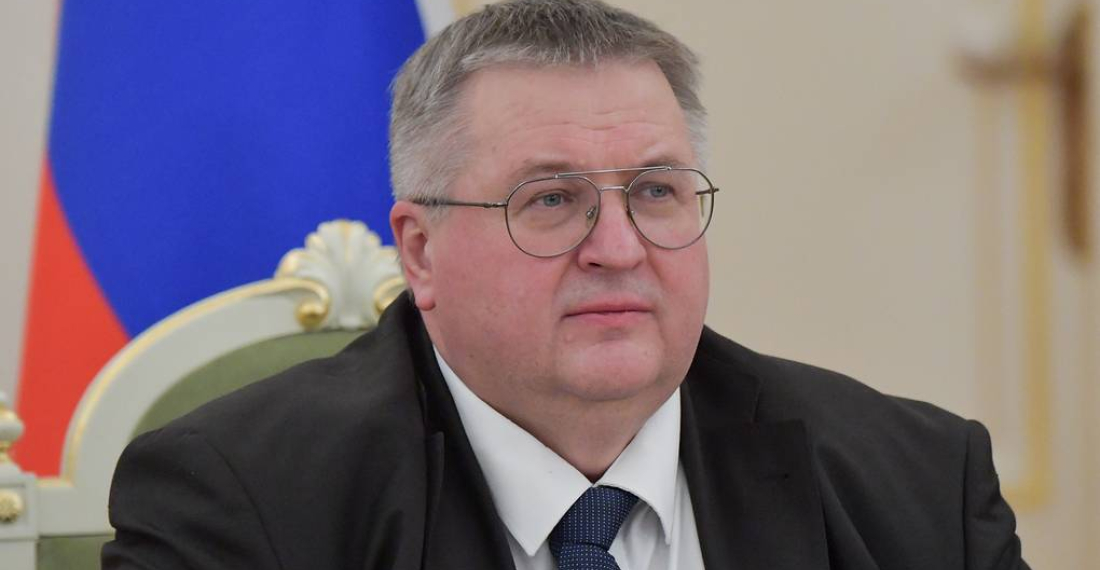Accession to the EU is incompatible with Armenia’s continued membership in the Eurasian Economic Union, a Russian-led trade bloc that gives it tariff-free access to Russia’s vast market, according to Russian Deputy Prime Minister Aleksei Overchuk. Armenia would also have to pay much more for Russian energy resources and food, Overchuk said. Last week, the Armenian Parliament adopted a bill calling for the government to seek accession to the EU, representing a significant shift in Armenia’s foreign policy perspective away from its long-time ally Russia.
Armenia’s growing ties with the West will fundamentally reshape its economic relations with the Kremlin, Overchuk added while speaking to the media on Thursday. “We understand that if Armenia is moving toward Europe, then it will inevitably necessitate a comprehensive reassessment of our relations with the country”, Overchuk said. “Unfortunately, this will have an impact on the standard of living in Armenia which is something we would very much like to avoid”, he added.
The deterioration of bilateral relations deepened after Armenia’s defeat in the Second Nagorno-Karabakh War in 2020 when Armenia faced a lack of support from Russia and the Moscow-led Collective Security Treaty Organisation (CSTO) during the Azerbaijani attacks on Armenia in 2021 and 2022.
Armenia is currently a member of the Eurasian Economic Union along with Russia, Belarus, Kazakhstan, and Kyrgyzstan. Since the issue of Armenia’s potential accession to the EU was raised, there were conflicting statements from Armenian politicians about the possibility of being in both blocs at the same time.
However, it looks certain that joining the EU would require Armenia to leave the Eurasian Economic Union because it has its own set of internal rules and standards, which are not compatible with the EU. Both include a customs union, a free trade zone with unified trade tariffs on outside imports.
Arman Yeghoyan, the pro-government chairman of the Armenian parliament committee on European integration, admitted last week that Yerevan will have to choose between the EU and the EEU. “If we reach a point of joining the EU customs union or have the kind of a free-trade agreement with the EU that Georgia or Moldovan have, then yes, that issue will arise,” Yeghoyan told RFE/RL’s Armenian Service.
When Armenia’s bill to join the EU was originally introduced earlier this year, Overchuk said that Armenia’s accession to the EU is ‘incompatible’ with its EEU membership and puts the country ‘before a choice’.
However, in separate comments on Thursday, Russian Foreign Ministry spokesperson Maria Zakharova said that Russian President Vladimir Putin and Armenian Prime Minister Nikol Pashinyan maintain regular contacts, and claimed that Armenia feels the importance of its ties to the EEU.
Pashinyan made no mention last week of Armenia’s possible exit from the EEU. His press office on Friday referred an RFE/RL inquiry about such a possibility to the Armenian Foreign Ministry. As recently as on December 13, Pashinyan again praised the EEU, saying that the bloc has contributed to robust economic growth in Armenia.
Russia accounted for around 42 percent of Armenia’s foreign trade in January-October 2024, compared with the EU’s 7.3 percent share in the total. Russian-Armenian trade has skyrocketed since 2022, with Armenian entrepreneurs taking advantage of Western sanctions imposed on Russia following its invasion of Ukraine.
Russia is also Armenia’s principal supplier of natural gas and nuclear fuel. Armenia pays the Gazprom giant $165 per thousand cubic meters of Russian gas used by not only power plants and households but also the vast majority of car owners in the country. Wholesale gas prices in the EU are currently three times higher than that.






